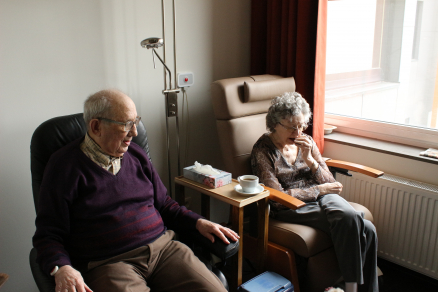When to be worried about memory loss
Everyone has issues with remembering things! We all know people who are rubbish with names and/or remembering dates.
As a person gets older, they will become more self conscious of this which may make themselves think they are getting worse, or people around them think they are getting worse. Add in to the mix that we all get slower at things as we get older, it is easy to see why people get jittery about their memory capacity.
When to be concerned about memory loss
The time to be concerned that it could be dementia is when a person becomes very much worse. It is important to remember that dementia is not everyday forgetting. A useful comment we once read was that it was ordinary to forget the odd telephone numbers, but it is likely to be dementia if the person has forgotten the telephone number as well as remembering how to use the phone properly. Dementia is identified when there is a clear decline in a person’s ability to both remember and do things. If a person could always read a map, but has started to take longer to read it, that is normal. If the person starts to hold the map upside down or even question what it is for, then there is a bigger issue behind it.
Whilst using the term ‘normal’ above, it is worth noting that there is no such thing as ‘normal’, everyone’s memory is different.
Keep a diary
If you are close enough to the person, you will have a fair idea as to what is ‘normal’ for them. If you see a marked decline from this person’s ‘normal’ levels, then that is the time to speak to them about it. If they are struggling to remember and ‘do’ things they can normally do with relative ease, like finding the right channel on TV, or using a cash machine, then raise this with them.
If you are concerned, don’t make light of it. If the person who is impacted asks you for your opinion and they highlight that they are worried about their own behaviour, then again, don’t dismiss it. Be practical and down to earth. Talk it through with the person and highlight the benefit of getting it checked out properly by the doctor.
If you are starting to have worries about a loved one and their memory and ability to do things, then make a list, keep a diary of what is happening. It will give you a clearer picture of what is going on and keep you better informed. If the person you are worried about refusing to entertain the idea there is anything wrong, then you can take this list/diary to the GP and get their advice.
If a person is resistant to speak to a GP and get/seek help, then it is important to remind them that there is a long list of other issues that could be the cause, and not dementia. Other things it could be are easily treated.
Things that impact memory but are not dementia;
Job loss, grief (death of a loved one), divorce
Alcohol usage
Poor health
Depression
Sleep deprivation
Thyroid issues
Vitamin B12 deficiency
Menopause
Use of sedatives/sleeping tablets
High usage of medicines
Anxiety/nervous system issues
Kidney problems
Urinary tract infections (leads to confusion)
Ordinary forgetting can arise from any of these things. Is it stress/tiredness, or depression? These questions need to be answered first before dementia can be looked at properly.
However, if it is dementia, then getting an early diagnosis is very important.
Get in contact with the GP, but as pointed out in other blogs, don’t assume the GP will sort everything. There are very low diagnosis rates in parts of the UK, so make sure you are firm with the doctor in finding out the cause of the problem. A lot of GP practices these days, will have a person who specialises in dementia, a specialist nurse or a psychologist, so they will be the best point of contact to get in to find a proper diagnosis.
Free care finding service






